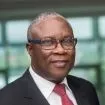- within Tax, Media, Telecoms, IT, Entertainment and Employment and HR topic(s)
- with Finance and Tax Executives
- in European Union
- with readers working within the Accounting & Consultancy, Metals & Mining and Oil & Gas industries
This newsletter highlights some of the recent developments in the Nigerian power sector :
Increased Investments in Nigeria Renewable Power and Mini-Grid Sectors
The renewable power industry has seen some new investments since the beginning of 2021. One notable project is the Ashama 200 megawatts/ HR solar photovoltaic (PV) farm – the largest solar PV farm project in West Africa1. The project, which is a public-private partnership arrangement will be led by a consortium of a Nigerian investment company, Sunnyfred Global, and a Singaporean renewable energy company, B&S Power Holding PTE. It has an expected fifteen months completion timeline and will occupy 304 hectares of land in Ashama village, Delta State. The Ashama project is expected to provide electricity access to about 36% of the rural population in the State, whilst reducing the impact of carbon emissions in the immediate environment.
Other noteworthy investments include the newly commissioned 100-kilowatt Adebayo2 and Havenhill3 Solar Hybrid Mini Grid in Adebayo, Edo State and Budo, Oyo State, respectively, under the Nigeria Electrification Project (NEP). The solar power plants and battery storage systems were built under the first tender of Nigeria's Rural Electrification Fund (REF) sponsored by the World Bank and African Development Bank. According to the Rural Electrification Agency (REA), the Solar Hybrid Mini Grid will provide electricity to about 500 households and 50 businesses through a 4.92km distribution network in several communities in the area. The projects are expected to catalyse economic activities, serve health facilities and have a multiplier and transformative effect on the host communities.
According to the Central Bank of Nigeria, Nigerians spend about US$14billion on generator and fuel annually. These Solar projects are expected to be key in diversifying the nation's electricity mix, and critically reduce its electricity poverty and carbon emission footprints. The REA estimates that the new projects will reduce more than 200 million metric tonnes of Nigeria's carbon emission which aligns with the NEP 30:30:30 vision; which targets to deliver 30 gigawatts of electricity with 30% renewable energy by 2030.
Nerc Signs Order on the "Structured Replacement of Faulty/ Obsolete Meters of End-Use Customers"
The Nigeria Electricity Regulatory Commission (NERC), based on recent customer enumeration data, estimates that about 7 million electricity customers are currently unmetered, while an additional 3 million meters are obsolete and require replacement. Meters serve as a revenue assurance tool for Nigeria Electricity Supply Industry (NESI) service providers and a resource management tool for end-use customers. According to NERC, the existence of a large population of unmetered customers has contributed to threats affecting the financial viability of NESI while unmetered end-use customers have also expressed dissatisfaction with the estimated billing methodology. Further, it noted that the revenue assurance objectives of DisCos have been challenged as they are unable to properly account for the utilisation of electricity by end-use customers.
Consequently, NERC has issued Order No. NERC/246/2021 on "the Structured Replacement of Faulty/ Obsolete Meters of End-Use Customers"4. The Order provides strict compliance guidelines to the DisCos for replacement of faulty or obsolete meters in line with the Metering Code and other regulatory instruments issued by the NERC.
NERC noted that the Order should address the issues noted by customers regarding the implementation of Meter Asset Provider (MAP) Regulations and National Mass Metering Programme including the non-inspection of the old functional meters by the DisCos before issuance of notice to replace; placement of customers on estimated billings when the replacement meters are not available; failure or refusal of the DisCos to transfer unutilised units from the old to the new unit; and transfer of alleged lost revenue as outstanding debts to the new meters without any evidence of meter tampering or unauthorized access.
However, end-users and customer groups continue to have concerns with the implementation of the new directive by the DisCos. According to the National Coordinator of All Nigeria Electricity Consumers Forum, Mr. Adeola Samuel-Ilori, the DisCos have a history of not complying with NERC's directive. Therefore, empowering them (the DisCos) to take away customers meters under the guise of being obsolete may only lead to more customers being placed on the obnoxious estimated billing system. He noted that the Order may create more issues for customers without proper monitoring of its implementation by NERC.
Government has introduced several initiatives to address the metering shortfalls, eliminate arbitrary billing and strengthen the local meter production value chain, however, many end-users and consumer groups continue to experience challenges with the implementation of these initiatives. It is therefore important that NERC puts in place a monitoring measure to ensure compliance with the guidelines contained in the Order by the DisCos in order to address the concerns of end-users.
Federal Government Signs the Pre-Engineering Contract for the Presidential Power Initiative
The Federal Government of Nigeria (FGN) and Siemens AG have signed a contract for the pre-engineering phase of the Presidential Power Initiative (PPI). It will be recalled that the FGN had approved the payment in May 2020 and set-up a special purpose vehicle - FGN Power Company, to work with Siemens to implement the initiative. The PPI, which was previously known as the Nigeria Electrification Roadmap (NER), will be implemented in three phases: Phase 1 will focus on critical and "quick win" interventions to increase end-to-end operational capacity, including transmission and distribution systems upgrade, to 7,000MW; Phase 2 will improve the operational capacity to 11,000MW by enhancing current distribution network bottlenecks to enable full use of generation and distribution capacity; and Phase 3 will focus on achieving total operational grid capacity of 25,000MW in the long term, with further expansion and upgrade of all national systems.
This pre-engineering phase will include engineering design, finalization of the project specifications and the commissioning works for transmission and distribution systems, network development studies, power simulation and training of local capacity.
The FGN Power Company will drive the execution of the PPI by providing project management for the PPI's implementation and serving as the key manager to ensure cohesion and seamless execution. It is expected that this will mark the beginning of the mandate of the PPI.
World Bank Approves Additional Electricity Grant for Regional Off-Grid Electricity Access Project
The World Bank has approved additional US$22.5Million funding for the Regional Off-Grid Electricity Access Project (ROGEAP or "the Project") in Western and Central Africa. The additional fund, which comes in the form of grants from the International Development Association (IDA) and Clean Technology Fund (CTF), will complement the US$150M and US$67.2M provided earlier by the IDA and CTF, respectively, for the project in April 2019.
The ROGEAP seeks to develop a regional market for stand-alone solar products, supporting entrepreneurs in business acceleration activities and providing credits/ grants for the deployment of standalone solar home systems in Western and Central Africa, by harmonizing policies, standards and business procedures. Nigeria is amongst the eighteen (18) African countries that would benefit from the ROGEAP, which is coordinated by the ECOWAS and the West African Development Bank.
The Project is expected to improve access to reliable electricity, boost the region's economic activities, support job creation, contribute to human capital development by electrifying public health centers and schools and provide access credit lines to industry players through the commercial banks operating in the sub-region.
Audit of Distribution Companies (DisCos) and Grid Reforms
The Minister of Power has hinted at targeted tariff reforms, aimed at improving the efficiency of the national grid and sustainability of off-grid renewable solutions.
The Minister, during a meeting with the United Kingdom Nigeria Infrastructure Advisory Facility (UKNIAF), in Abuja, noted that there is need for technical support to NERC, Transmission Company of Nigeria (TCN), Rural Electricity Agency (REA), and Nigerian Bulk Electricity Trading Company (NBET) in order to address the dearth of technical and structural issues in the power sector. He further noted that the intervention would focus on power sector policy reforms, tariff reforms, DisCo audits, grid efficiency and sustainable off-grid renewable solutions to improve the sustainability of the Nigeria Electricity Supply Industry.
The Project is expected to improve access to reliable electricity, boost the region's economic activities, support job creation, contribute to human capital development by electrifying public health centers and schools and provide access credit lines to industry players through the commercial banks operating in the sub-region. Increased Power Supply in 2nd half of 2020 According to the NERC, a total of 8.734million MW-hours of electricity were generated in the second quarter of 2020 and this represents a 1.4% increase compared to energy generated in the preceding quarter. This was also reechoed by the Manufacturers Association of Nigeria (MAN), who reported an increase to 12 hours, from 10 hours daily average since 2019, in electricity supply from the DisCo to the sector in the second half of 2020.
However, NERC noted that the capacity utilization rate fell by 8.16% during the same period which may be attributed to constraints relating to gas supply shortage, and bottlenecks in transmission and distribution networks. Remarkably, the expenditure on alternative energy also increased to N57.75 billion from N34.70 billion (a 66.4% increase) due to the general high inflationary pressures in the economy and increase in the petrol pump price.
Although these constraints continue to pose major technical and operational challenges to the industry, NERC reassured industry players that the resolution of technical and operational challenges in the power sector remains its top priority as it would continue to work on addressing the interface bottlenecks between the DisCo and the TCN.
Tcn Embarks on Additional Investments to Improve National Grid Connections and Service Delivery
The French Development Agency (AFD) has set aside €300 million to fund the Abuja Electricity Backup Project, in collaboration with the TCN. Further, an additional €200 million has been earmarked for the North West Electricity backup to strengthen the electricity transmission network. The Projects will improve electricity supply to the nation's capital and surrounding regions. According to the World Bank, Nigeria has lost about US$26.2billion due to unstable power supply with 43% of the country's 200 million population not connected to the national grid.
Other notable projects include the replacement of the corroded glass disc insulators on Tower 425 of Ikeja West to Osogbo 330KV transmission line, upgrade of the Kebbi-Sokoto transmission line, delivery and installation of a 60/66MVA power transformer in the Kubwa substation in Abuja, delivery and installation of a 60/66MVA power transformer in Kumbotso substation in Kano and moving of a 30MVA mobile transformer to the new Bichi substation.
According to the acting Managing Director of TCN, the company acquired a new facility for its Project Implementation Units (PIUs) to enhance management of the projects in order to deliver additional megawatts to the grid. The PIUs are specialized units of TCN which will ensure the delivery of critical transmission line and substation projects within specified quality and timeframe. TCN recorded the fastest recovery of the power grid system within 45 minutes after a partial collapse earlier in the year and assured the public that it is working towards a zero system collapse. Further, the TCN noted that the Projects will help to boost the national power grid by an additional 4,000MW when completed.
Footnotes
1 https://www.prnewswire.com/news-releases/nigeria-hosts-west-africas-largest-solar-pv-farm---bs-power-holding-pte-sunnyfred-global-facilitate-200mw- solar-pv-project-in-ashama-delta-state-301230610.html
2 NIGERIA: the REA inaugurates a 100 kWp hybrid solar mini-grid in Adebayo | Afrik 21
3 NIGERIA: NDIF invests $4.6m in Havenhill for 22 solar mini-grids | Afrik 21
4 14505-NERC Order on Meter Replacement-proshare.pdf (proshareng.com
The opinion expressed in this article is solely personal and does not represent the views of any organization or association to which the authors belong.
[View Source]




